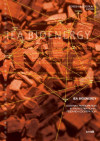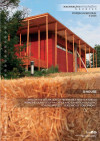Suchergebnisse
IEA Bioenergy

Austrian Participation in an international Research Cooperation
Forschungsforum
4/2000
Herausgeber: BMVIT
Englisch, 6 Seiten
Downloads zur Publikation
Sustainable energy supply for Austria
Rapidly increasing energy consumption and decreasing resources of fossil fuels lead to dramatical economical, ecological and social problems.This study identified the feasible long term potential of renewable energy sources. Then ways were developed how to supply the demand for future energy consumption with renewable energy sources, despite increasing energy services.
Technology Platform Photovoltaic Austria
Between research institutions and the economic system the way has been paved to initiate joint R&D projects. Common research activities have been initiated and intensified to be able to position local companies in international niche markets for photovoltaics.
Integration of wind energy by load management
Simulation of optimal strategies to integrate wind energy in Austria and Germany under consideration of load management to maximize the resulting CO2-savings.
Technology and Innovation Roadmap "BioHeating and Cooling"

The Roadmap links with the energy research strategy of the Austrian Council for Research. It was developped together with national stakeholders from industry to deduct recommendations for policy makers. It includes clear suggestions for research topics until 2020 and provides an outlook on the contribution of biomass to the heating sector of a decarbonised energy system in 2050.
Solar energy - a significant economic factor

Major goals of this study were determination of the number of jobs provided in the thermal solar energy sector, the added economic value created in this sector and the predicted effects of achieving the goals, in order to better evaluate the economic significance of the use of thermal solar energy.
Agriculture 2020
Agriculture will become an important supplier of sustainable energy services for society. However, this sector can only fulfil this role if it operates on the base of sustainable energy provision itself. The project will determine the necessary measures to achieve this state for a concrete regional setting (eastern Styria) by the year 2020.
Study of the Potential of Popcorn-Technologies for the Austrian Energy System
Pyrolysis technologies in Europe
Technology overview of medium-fast pyrolysis for decentralised applications, for small and medium-sized enterprises and for the circular economy
Integration by Cooperation
The aim of the project was to assess which forms and conditions of interaction can foster the integration of higher shares of distributed generation into the Austrian electricity grid.
Energy system - Industrial region
Analysis of success factors, restrictions and risks on the development and implementation process caused by the system integration of renewable energy technology in industrial regions with higher energy demand.
Schiestlhaus, Hochschwab

An integrated (overall) concept for an ecological alpine refuge hut based on solar energy
IEA Photovoltaic Power Systems (PVPS)
Enhance the international collaborative efforts which facilitate the role of photovoltaic solar energy as a cornerstone in the transition to sustainable energy systems. The IEA PVPS programme aims to realise its mission through objectives related to reliable PV power system applications, contributing to sustainability in the energy system and a growing contribution to CO2 mitigation.
Virtual power plants and DSM
For the cost efficient and lasting energy supply from ecological sources, wind, photovoltaic and biomass have to be integrated in existing grids. New methods for DSM and virtual power stations are investigated, to improve the control behaviour.
Monitoring Sunhouse Eferding
In course of the monitoring project the effectiveness of the energy-technical system was checked on the basis of running measuring data. The data were evaluated and, if required, the arrangements and settings of the control system were adapted. Main result is that the energy balance could have been improved explicitly whilst the monitoring process.
Best Biogas Practice
Compilation of guidelines and benchmarks for "best biogas practice" to ensure efficient biogas production. Constitution of an Austrian network including all partners in the biogas production cycle.
Modernizing by Catalogue

Façade and Open Space Modernization with Standard Building Components in Housing of the Fifties und Sixties.
S-House

Innovative Utilisation of Renewable Raw Materials as in the Example of an Office and Exhibition Building for the Project "Building of Tomorrow"
Forschungsforum
3/2005
Herausgeber: BMVIT
Englisch, 6 Seiten
Downloads zur Publikation
REVITALISING with S.A.M. - Synergy Activation Modules

Case study for the development of modules that allow for the revitalisation of existing structures without interruption of utilization (two studies, one realisation).
